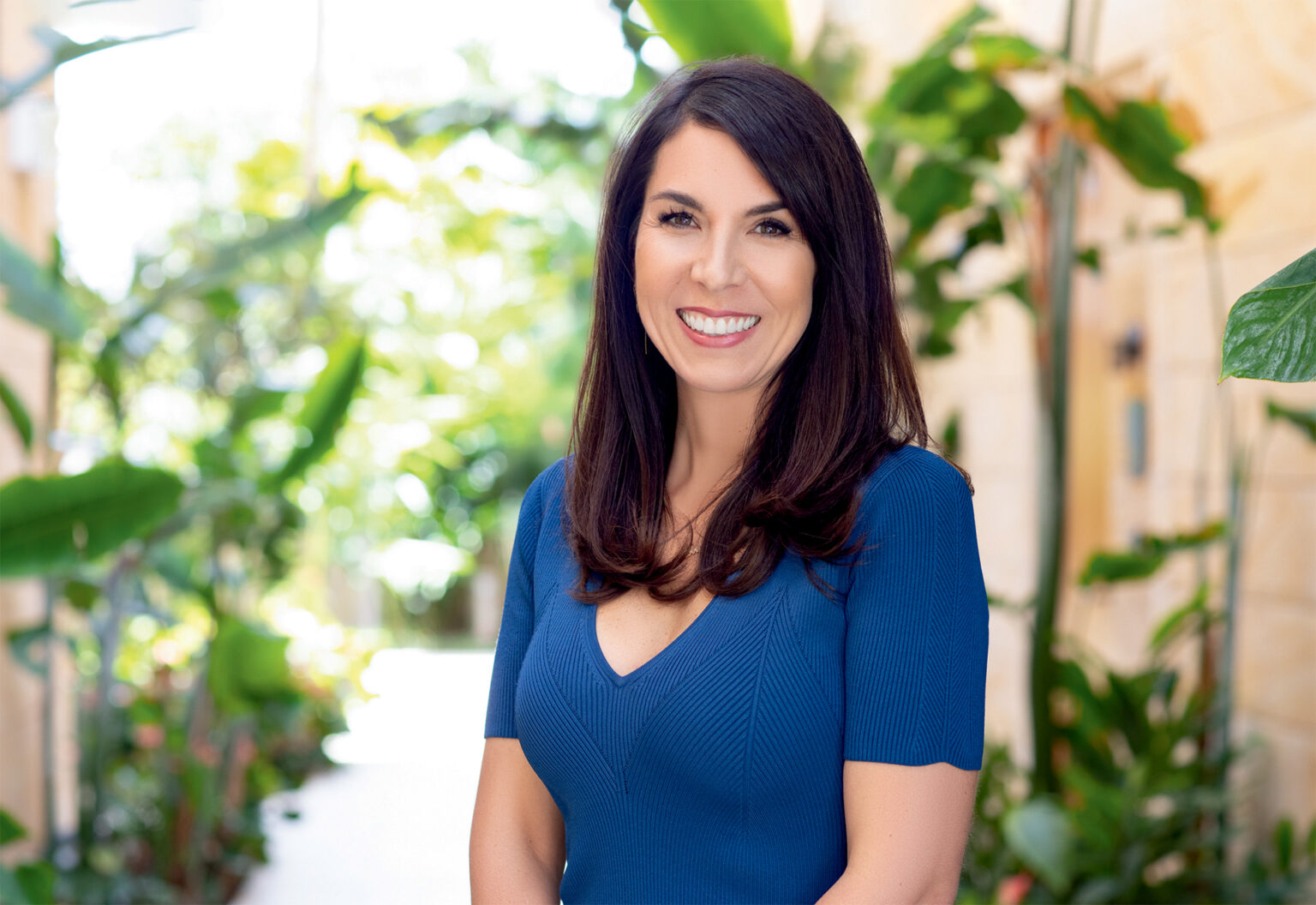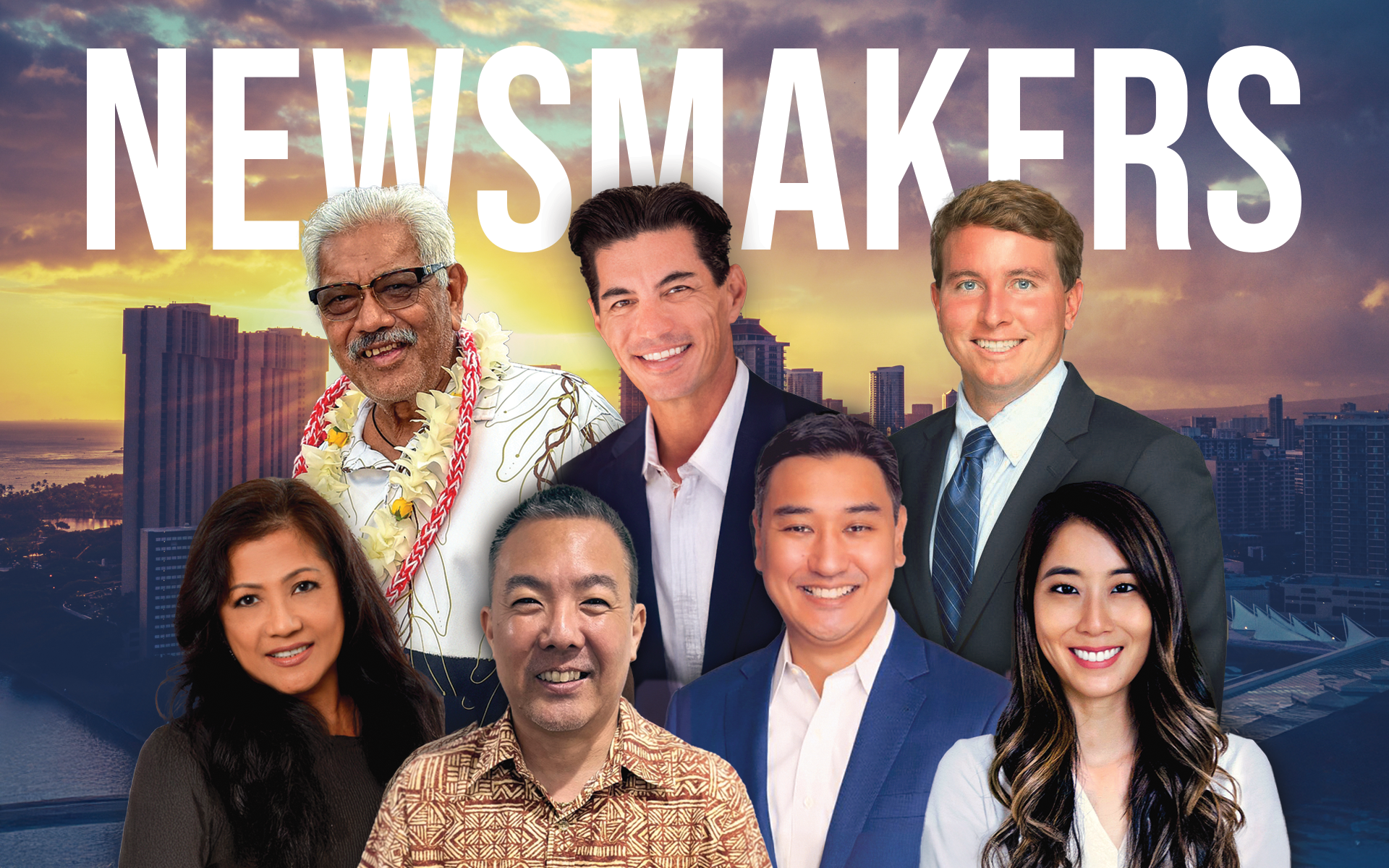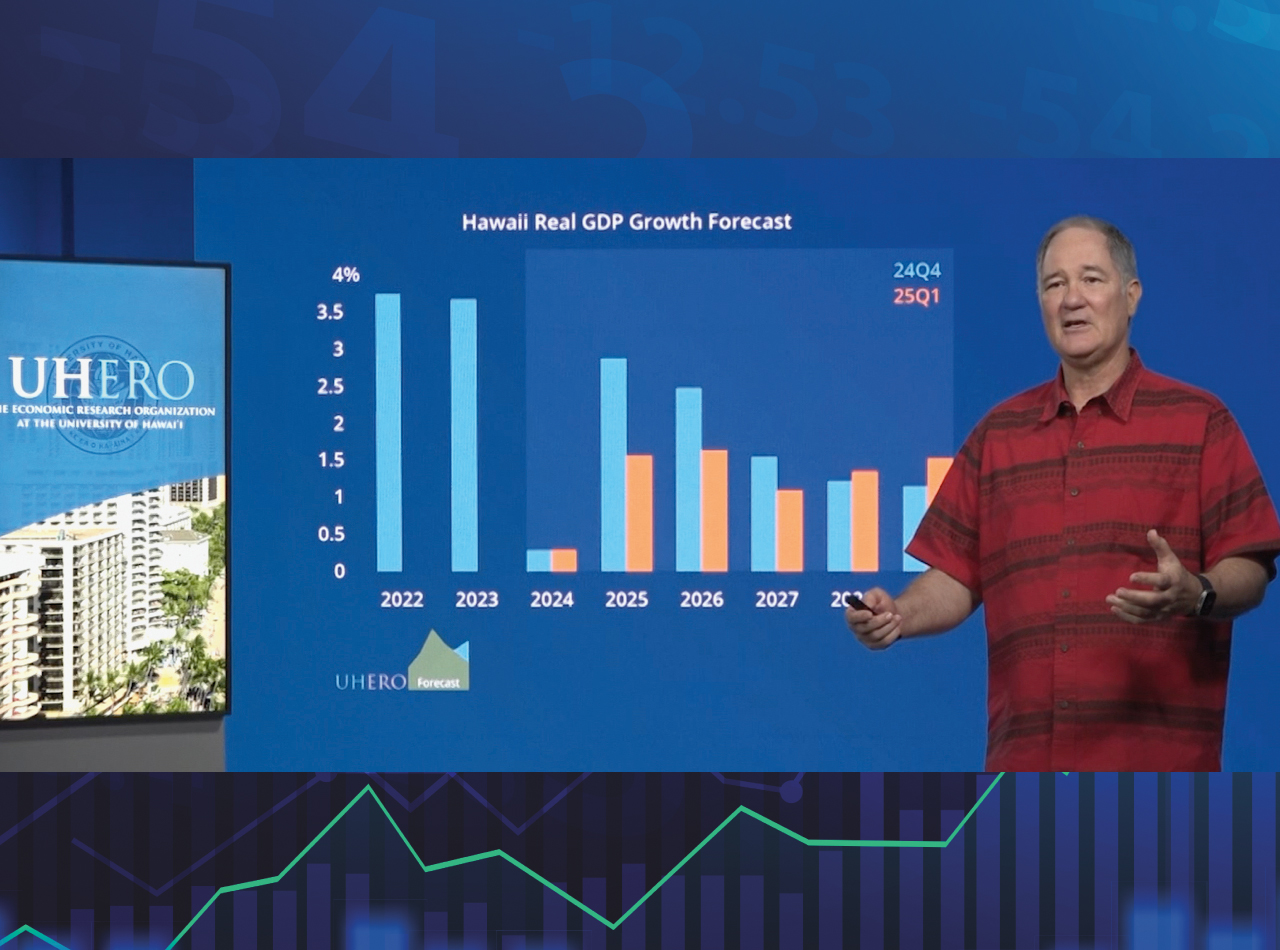When Kobayashi Group LLC named Alana Kobayashi Pakkala as its new CEO in September, the news ushered in a new era at the Hawaiʻi-based real estate development firm.
“Alana’s time has truly arrived; she is among the most talented and dedicated professionals in our industry,” Patrick Kobayashi, chairman of the board of directors at Kobayashi Group, said in a news release announcing her promotion. “Her strong, compassionate and visionary leadership has driven unprecedented success, achieving more in the last five years than in any other period in the history of the company.”
Pakkala, who has been with the company for more than 22 years, has been instrumental in some of the firm’s most high-profile projects, including luxury developments such as Kūki‘o Golf & Beach Club and Four Seasons Hualālai.
She was also a key player in affordable housing initiatives Kapolei Kai and Hale Kālele on Oʻahu, and since 2020 has overseen the development of 2,067 residential units, of which 60 percent are designated affordable.
Pakkala answered the following questions for Building Industry Hawaii via email.
QUESTION: What initially drew you to a career in construction?
ANSWER: I grew up in a construction family — I think it’s in my DNA. My grandfather, Albert, started his construction business in 1944. In 1963, at just 19 years old, my father, Bert, took over the company and expanded it into a thriving family business. Watching them work instilled in me a deep respect for the industry and the people who build the physical spaces that form our communities.
Q: What unique qualities do you bring to your role as CEO?
A: I started as a project coordinator — essentially running errands — when I was 27. Over the years, I worked my way up, taking on different roles and responsibilities, which gave me the chance to experience almost every aspect of the business. That journey was invaluable because now, as CEO, I have a deep understanding of the work we do and what it takes at every level. Leadership isn’t just about giving direction — it’s about getting in the trenches and working alongside your team to get the job done. My dad’s “sink or swim” approach really shaped who I am today. He didn’t teach me step by step, but he created an environment where I had to figure things out while surrounded by some incredibly talented people.
Q: Who have been your role models?
A: Both of my parents have been incredible role models, but my father stands out for his servant-leadership style. His humility and dedication to building long-term relationships and partnerships have been guiding principles for me. He taught me that true success is about ensuring everyone wins and celebrating others’ victories as much as your own.
Q: What’s the best advice you received from a mentor?
A: My father gave a lot of great advice, but two pieces in particular shaped my approach [to] both business and life. The first is the concept of “win-win.” In every deal, I strive to find a solution where everyone benefits. The second is his mantra about “base hits versus home runs.” Focus on delivering consistent, high-quality work that adds up over time. This approach keeps you in the game and allows you to keep building momentum toward continued success.
Q: How has networking with others in the industry benefited your career?
A: Networking has been invaluable. I’m deeply grateful to the architects, engineers and industry veterans who took the time to teach me the nuances of this business. I’ve always approached these relationships with curiosity and a willingness to learn, asking questions and not being afraid to admit what I didn’t know.
Some of these connections date back to high school and my earliest projects, like working with architect Steve Teves on the Kūkiʻo spec homes 20 years ago. These long-standing relationships have been the foundation of my growth — I continue to work with many of them today. Now, I strive to pay it forward by mentoring the next generation.
Q: What’s the most challenging aspect of your job?
A: Navigating the ever-changing regulations in our industry requires constant problem-solving and adaptability. Each project we take on is essentially a custom build, which brings its own challenges and opportunities. At the same time, this is what makes the work so fulfilling — it pushes us to think creatively and adapt.
Q: Can you describe a typical day in your new role?
A: My day starts early around 4:30 or 5 a.m. I usually begin by reviewing emails and organizing priorities for the day. After getting my kids ready and driving them to school, I meet with our COO at 7:45 a.m. every morning. From there, it’s back-to-back meetings. My goal is to keep multiple projects moving forward while making sure the team has the support they need to succeed. I do my best to be home by 5:30 or 6 p.m. It’s a demanding schedule, but it’s incredibly rewarding.
Q: Which project that you’ve worked on has had the biggest impact on your career so far?
A: The three projects we’re currently working on — Parkway Village, Kuilei Place and Ālia — and one we recently completed, Hale Kālele, stand out. Together, these projects represent 2,067 residences, spanning LIHTC rentals, affordable workforce and luxury housing. Leading these from the ground up has been a transformative experience.
Q: How do you foster innovation and teamwork at Kobayashi Group?
A: At Kobayashi Group, collaboration is key. We ensure every team member feels empowered to share their ideas and we rely heavily on each other’s expertise. I believe fear of failure stifles innovation, so we encourage calculated risks and problem-solving without being afraid to make mistakes.
Q: How do you envision Kobayashi Group’s growth under your leadership?
A: Our company will always remain rooted in family values. Over the next 15 years, I hope Kobayashi Group continues to play a pivotal role in solving Hawai‘i’s housing crisis. I want to see our company create thousands of more homes for Hawai‘i’s workforce while maintaining a commitment to sustainability and best-in-class design.
Q: How does Kobayashi Group’s work contribute to solving Hawai‘i’s housing and economic challenges?
A: If people don’t have secure, affordable housing, it affects every aspect of life — health, education and even our economy. If our hotel and hospitality workers can’t afford to live here, we lose the aloha spirit that’s so vital to Hawai‘i’s identity. The same goes for our doctors, nurses, teachers and others who are essential. By delivering housing across all segments — from affordable rentals to workforce housing to luxury developments — we’re addressing a broad range of needs. Housing is not just about providing a home; it’s about ensuring that Hawai‘i remains a vibrant, sustainable place for generations to come.
Q: How do you approach balancing luxury and affordable housing developments?
A: For us, there’s little difference in the attention to detail, quality and innovation that goes into each project. We often work with the same partners for both types of developments to ensure a consistent standard of excellence. We are also intentional. For every luxury project, we prioritize an affordable or workforce housing development. This one-to-one approach allows us to create a cohesive ecosystem of housing options. We are equally committed to addressing the pressing need for affordability.
Q: How do you view your role in supporting local communities through your projects?
A: Our island community is at the heart of everything we do. From the time I was little, I saw my father’s deep commitment to Hawaiʻi — he taught me and my brothers that giving back was not optional but our kuleana. I remember him requiring us to choose a local cause and dedicate our time to it. That sense of service has been another guiding principle in how I approach our projects today.
At Kobayashi Group, we all live in Hawai‘i, and we purposefully only do business here. That focus keeps our goals and objectives very clear: to create projects that strengthen and uplift our local communities. Whether it’s through affordable housing, sustainable practices, or partnering with local businesses, we approach every project with a long-term, local perspective.
For me, it’s also about thinking ahead. I want these projects to leave a lasting, positive impact—not just for the families moving into these homes today but for future generations, including my own children and someday, their children. Because my family lives here, our stake in these communities goes beyond business — it’s deeply personal.
Q: What do you say to other women who want to succeed in engineering, construction and contract administration?
A: First, I’d say: “Don’t be afraid to step into spaces where you might be the only woman in the room. It can feel daunting, but your voice and perspective are incredibly valuable. Be confident in your ability to contribute and don’t shy away from asking questions or admitting what you don’t know — it’s the best way to learn.”
Second, put in the hard work early. Dedicate yourself fully to building your skills, knowledge and reputation. Those long hours and extra effort at the beginning of your career lay the foundation for future success. This is especially important if you plan to have a family one day — it becomes much harder to juggle everything later.
Finally, surround yourself with mentors and allies who can guide and support you. I’ve been fortunate to have incredible mentors throughout my career, and now I strive to pay it forward by mentoring the next generation in this industry. The construction industry is about building communities — it’s meaningful, impactful work, and there’s a place for [anyone] who wants to be a part of it.
Q: How do you maintain a balance between your professional responsibilities and personal goals?
A: Balancing work and family is one of the most challenging aspects of my life, but it’s also the most rewarding. I start each day by planning out my priorities [and] making sure I dedicate time to both my professional commitments and my family.
For me, it’s about being fully present in each role. When I’m at work, I give it my all; when I’m home with my kids, I try to be completely focused on them. But I’ve learned that balance isn’t about perfection — it’s about making intentional choices and being kind to yourself in the process.
At the end of the day, I remind myself that both my career and my family are deeply connected to my sense of purpose, which helps me stay grounded and focused.
Q: Where is your favorite place to go for a plate lunch? What’s your order?
A: While it’s not exactly in the neighborhood, my absolute favorite place is Waiahole Poi Factory where I always order the same thing: laulau, kalua pig and chicken long rice with poi, lomi salmon and haupia. I also have to add the “Sweet Lady of Waiahole” which is warm kulolo and haupia ice cream. It’s the perfect plate lunch!




